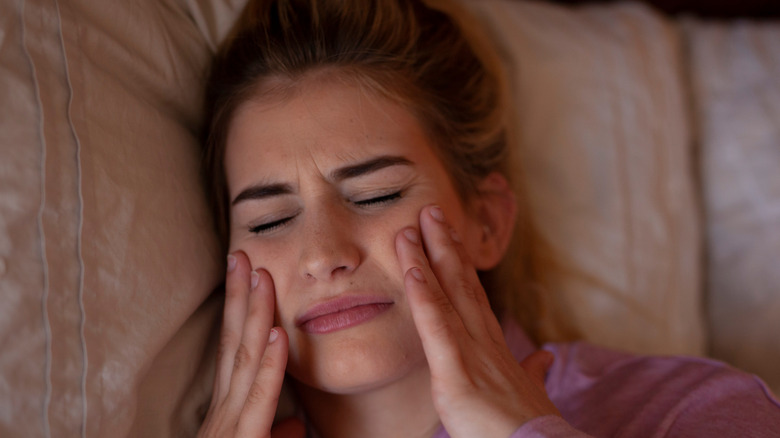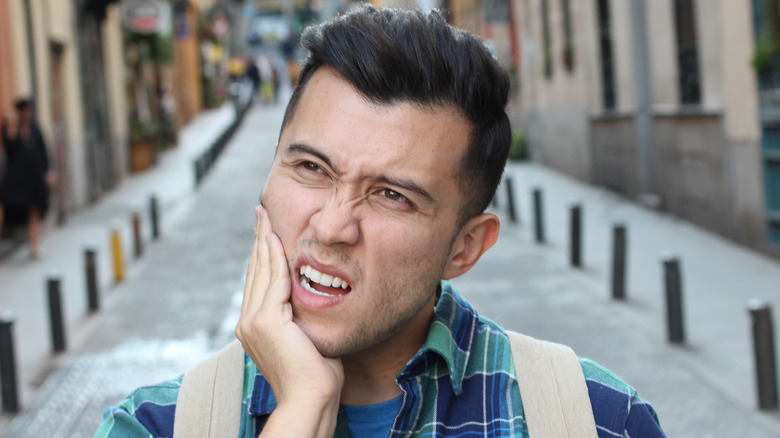What Really Happens When You Clench Your Teeth Too Much
Everyone handles stress differently. Some people unintentionally clench their jaw when working through stressful situations while they're awake and while they're sleeping. If this is something you've experienced, you're not alone — one in three people have bruxism, or clenching of jaw/grinding of teeth (via Everyday Health).
While this may not sound too serious at first, clenching your teeth can lead to dental problems, as well as other issues. Obviously, clenching your jaws can affect your teeth via cracking, chipping, or fracturing your teeth, as well as loosening previous dental work (via Colgate). It may not even be immediately noticeable, however, because clenching your jaw can affect your teeth's enamel over a period of time.
More serious jaw clenching can lead to temporomandibular joint (TMJ) issues, according to Everyday Health. Temporomandibular disorders (TMD) occur when the joints around your jaw are inflamed, therefore having less movement and potentially causing pain, as well as popping or clicking during movement.
How you can stop clenching your jaw
If you wake up experiencing morning headaches, a sore jaw or facial muscles, or neck pain, you may be clenching your teeth in your sleep, according to Colgate. If you can't determine if you're clenching your jaw, your dentist may be able to tell. Dental experts told Everyday Health that people who clench their jaw often end up with large jaw muscles, as they do it in a rhythmic motion. Dentists will also see more damage in those with square jaws, as they exert more force in clenching.
Now that you know what can happen when you clench your teeth too much, how can you stop it? The number one way is to reduce your stress level, as it is one of the leading causes of teeth clenching (via Colgate). You can also seek the help of your dentist to discuss options like wearing a mouthguard or corrective work on misaligned teeth.


